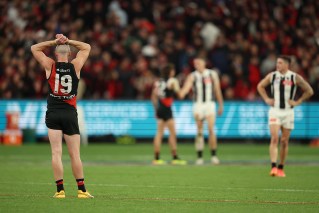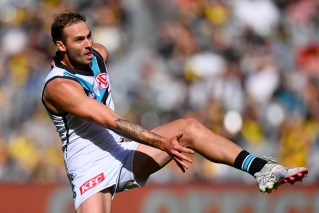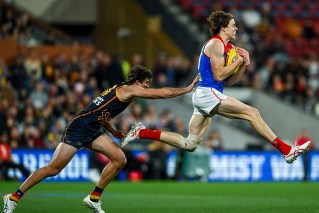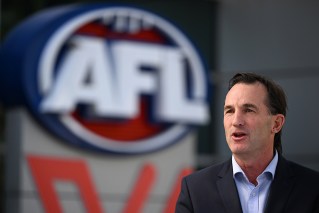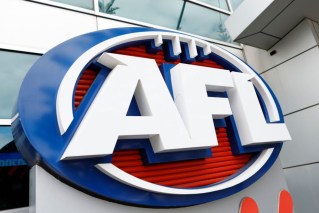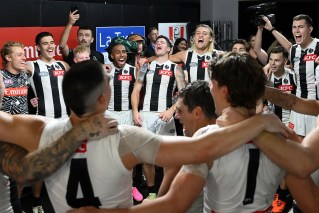Women in the AFL? You must be joking
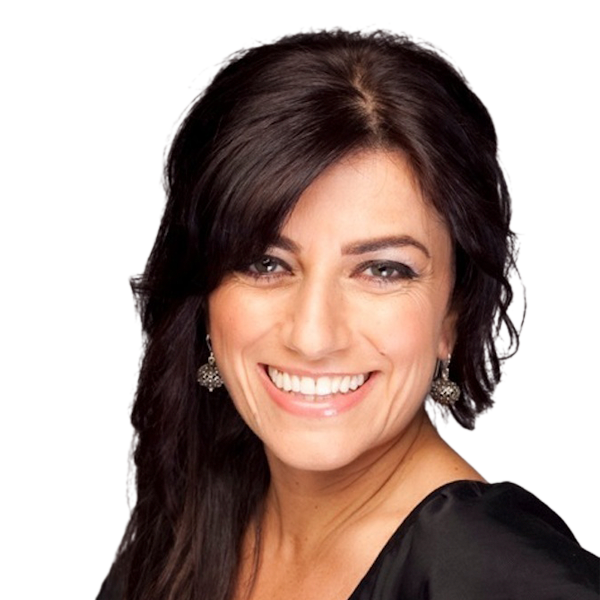
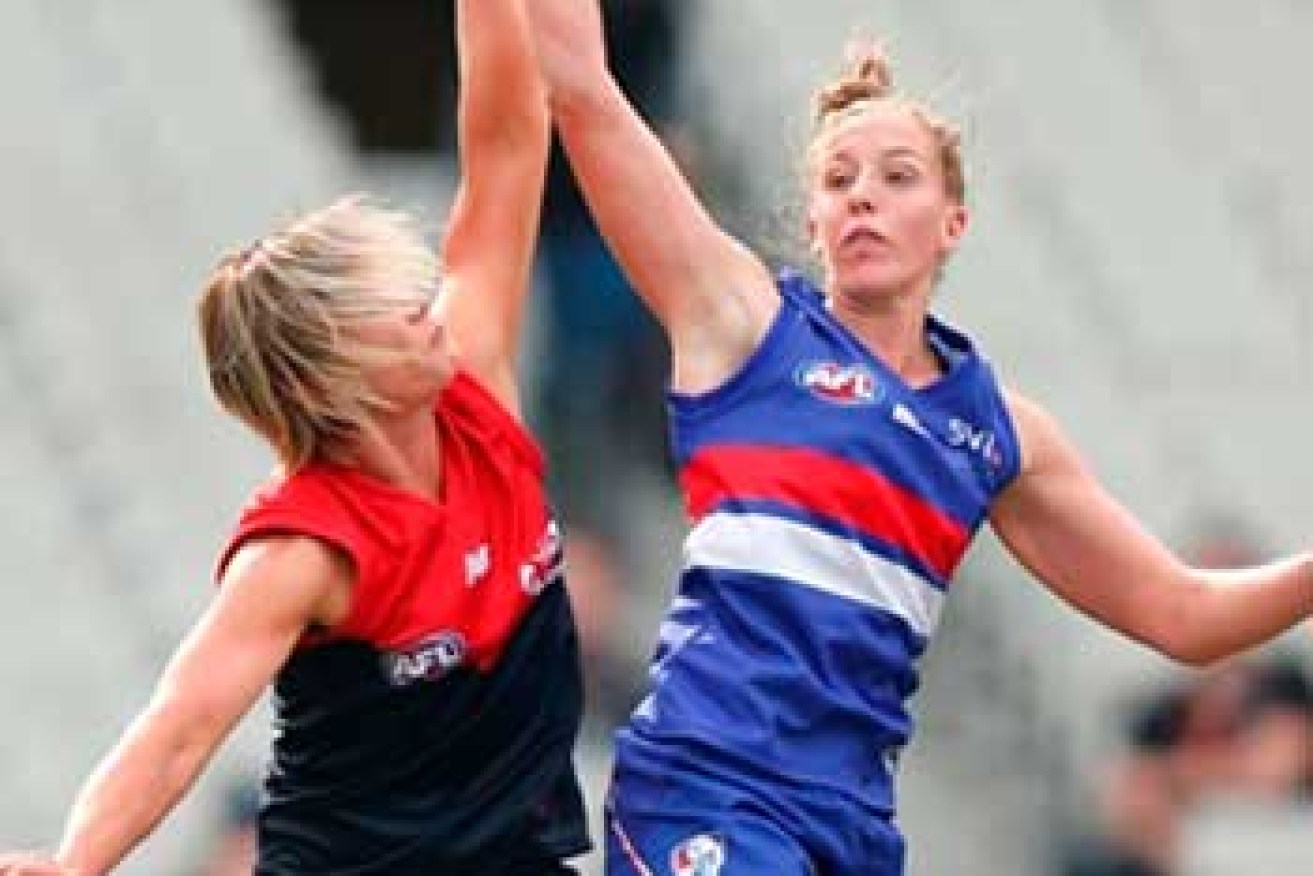
Danielle Goding (left) and Emma King battle in the ruck. Photo: Michael Wilson-AFL Media.
Spectacular marks, bone crunching tackles and clever goals are all part of women’s football – so too is spirited debate about the best way forward for the burgeoning sport.
The third exhibition match between Melbourne and the Western Bulldogs at the MCG last week sparked a new round of discussions with some opinion-makers running with the “if they’re good enough they should compete with men” line.
This might be well meaning but it misses the point and a golden opportunity for change.
• Bouchard’s twirl is more casual sexism
• Like a (grid) girl: how F1 needs to man up
• Dustin Fletcher: dependable, humble, immortal
The idea that, to have equality in sport, women must compete with men bothers me.
It’s a tired argument that brings to mind the gold-coated rickshaw that carried Bobby Riggs onto court against Billie Jean King in the “Battle of the Sexes”.

Bobby Riggs and Billy Jean King clashed in 1973. Photo: AAP
Like the sauna exercise suit, that thinking should stay in the 1970s.
Forty years later people are still suggesting equality is best served by throwing men and women together in the same field of play.
Because, that’s the only way to demonstrate how good women are as athletes. Or so the argument goes.
Why should men be the measuring stick of greatness?
As a starting point how about we just stop comparing men and women.
It’s time to come to terms with the fact men and women are different. We are wonderfully different and this is a good thing that should be embraced and celebrated.
We should be striving to create meaningful and lasting sporting competitions women can flourish in.
Let women play by themselves.
That’s what the AFL is working towards with its push for a national women’s competition, which it hopes to introduce in 2017.
In his address to the AFL’s annual women’s industry lunch, CEO Gillon McLachlan was bullish about the League’s plans.
“The national women’s league is inevitable,” he said.
“In fact it is coming. The only question is timing. There’s a view that the depth of talent required will make it 2020. I’m pushing everybody to be a bit more adventurous than that … but this is coming.”
Not everyone shares the AFL’s vision.
Some observers say women are being “shunted into a lesser league” without access to all the spoils of the men’s competition.
Perhaps my glass is half full, but we should be bolder than that.
Playing sport with men will not take women to the Promised Land.
Absorbing women into the (predominantly male) picture is not the answer to decades of inequality in sport.
You have to start somewhere.
Female participation in Australian rules has tripled in the last five years. Women and girls now represent 19 per cent of all players.

Danielle Goding (left) and Emma King battle in the ruck. Photo: Michael Wilson-AFL Media.
Last year the sport attracted 195,000 female participants in school and community-based competitions around the country, 27,300 girls to Auskick and 100 new female teams.
If “they’re good enough” let these women play on their own stage where they can shine independently of men. Where they can become household names, make a decent living, win premierships, win best and fairest awards and build friendships for life.
In their own right.
Surely it’s better to establish a successful women’s league, one that aspires to have rusted on sponsors and lucrative broadcast deals. This will be a more meaningful measure of true equality.
Only a women’s competition can create a clear pathway for girls who want to play football at the elite level. This is the way to unearth and foster role models, the kind of strong, independent and healthy role models society is crying out for.
Girls can play Australian rules with boys up to the age of 14 but AFL Victoria says the message from girls is loud and clear.
“We are responding to the needs of the girls and they want an all-female environment”, says Chyloe Kurdas, AFL Victoria’s Female Development Manager.
Some sports lend themselves to mutual participation, and I’m all for it in motorsport and horse racing.
The push for equality in tennis has been a sustained effort. King set up the Women’s Tennis Association and campaigned for equal pay. She was a pioneer.
Women’s sport needs pioneers and drivers of change, not fanciful notions of a one-size-fits-all approach.
On this, the AFL is listening.


